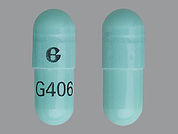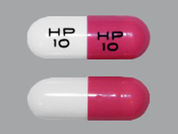Before taking indomethacin, tell your doctor or pharmacist if you are allergic to it; or to aspirin or other NSAIDs (such as ibuprofen, naproxen, celecoxib); or if you have any other allergies. This product may contain inactive ingredients, which can cause allergic reactions or other problems. Talk to your pharmacist for more details.
Before using this medication, tell your doctor or pharmacist your medical history, especially of: asthma (including a history of worsening breathing after taking aspirin or other NSAIDs), bleeding or clotting problems, growths in the nose (nasal polyps), heart disease (such as previous heart attack), high blood pressure, liver disease, stomach/intestinal/esophagus problems (such as bleeding, ulcers, recurring heartburn), stroke.
Kidney problems can sometimes occur with the use of NSAID medications, including indomethacin. Problems are more likely to occur if you are dehydrated, have heart failure or kidney disease, are an older adult, or if you take certain medications (see also Drug Interactions section). Drink plenty of fluids as directed by your doctor to prevent dehydration and tell your doctor right away if you have a change in the amount of urine.
This drug may make you dizzy or drowsy. Alcohol or marijuana (cannabis) can make you more dizzy or drowsy. Do not drive, use machinery, or do anything that needs alertness until you can do it safely. Talk to your doctor if you are using marijuana (cannabis).
This medicine may cause stomach bleeding. Daily use of alcohol and tobacco, especially when combined with this medicine, may increase your risk for stomach bleeding. Limit alcohol and stop smoking. Consult your doctor or pharmacist for more information.
Before having surgery, tell your doctor or dentist about all the products you use (including prescription drugs, nonprescription drugs, and herbal products).
This medication may make you more sensitive to the sun. Limit your time in the sun. Avoid tanning booths and sunlamps. Use sunscreen and wear protective clothing when outdoors. Tell your doctor right away if you get sunburned or have skin blisters/redness.
Older adults may be at greater risk for stomach/intestinal bleeding, kidney problems, heart attack, stroke, and mental/mood changes while using this drug.
Children may be more sensitive to the side effects of this drug, especially serious liver problems. Caution is advised when this drug is used by children. Discuss the risks and benefits of treatment with your doctor.
Before using this medication, women of childbearing age should talk with their doctor(s) about the benefits and risks. Tell your doctor if you are pregnant or if you plan to become pregnant. This medication may harm an unborn baby and cause problems with normal labor/delivery. It is not recommended for use in pregnancy from 20 weeks until delivery. If your doctor decides that you need to use this medication between 20 and 30 weeks of pregnancy, you should use the lowest effective dose for the shortest possible time. You should not use this medication after 30 weeks of pregnancy.
This drug passes into breast milk and may have undesirable effects on a nursing infant. Consult your doctor before breastfeeding.



